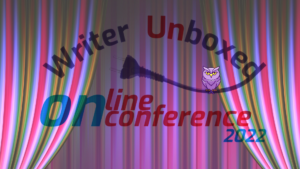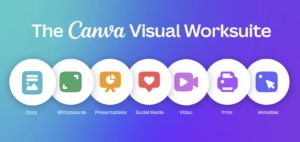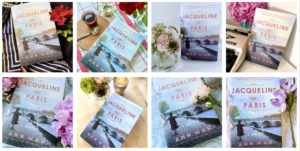Business
After the excitement of a “yes” from a publisher comes the job of assessing your publishing contract.
Facing down ten pages of dense legalese can be a daunting task, especially for new and inexperienced writers, who may not have the resources to hire a literary lawyer, or have access to a knowledgeable person who can help de-mystify the offer terms.
And it is really, really important to assess and understand those terms, because publishing contracts are written to the advantage of publishers. While a good contract should strike a reasonable balance between the publisher’s interests and the writer’s benefit, a bad contract…not so much.
In this article, I’m going to focus on contract language that gives too much benefit to the publisher, and too little to the author. Consider these contract clauses to be red flags wherever you encounter them. (All of the images below are taken from contracts that have been shared with me by authors.)
Copyright Transfer
Unless you are doing work-for-hire, such as writing for a media tie-in franchise, a publisher should not take ownership of your copyright. For most publishers, copyright ownership doesn’t provide any meaningful advantage over a conventional grant of rights, and there’s no reason to require it. Even where the transfer is temporary, with rights reverting back to you at some point, it doesn’t change the fact that for as long as the contract is in force, your copyright does not belong to you.
Copyright transfers usually appear in the Grant of Rights clause. Look for phrases like “all right, title and interest in and to the Work” and “including but not limited to all copyrights therein.”
Watch out also for contracts where a copyright transfer in the Grant of Rights clause is contradicted by language later on–such as requiring the publisher to print a copyright notice in the name of the author (which shouldn’t be possible if the author no longer owns the copyright). For one thing, you don’t want your contract to be internally contradictory, which could pose legal issues down the road. For another, such contradictions suggest that the publisher doesn’t understand its own contract language, which is never a good thing.
There’s more on the not-uncommon problem of internal contradictions here.
Life of Copyright Grant Without Adequate Reversion Language
Big publishers routinely require you to grant rights for the full term of copyright (in the US, Canada, and most of Europe, your lifetime plus 70 years). Although they’re more likely to offer time-limited contracts, many smaller presses do as well.
Contrary to much popular belief, this is not necessarily a red flag…as long it’s balanced by clear, detailed language that ensures you can request contract termination and rights reversion once sales drop below specific benchmarks: for example, fewer than 100 copies sold during the previous 12 months, or less than $250 in royalties paid in each of two prior royalty periods. Publishers like to sit on rights, because they can make money from even low-selling books if they have a big enough catalog. Authors, on the other hand, don’t benefit from a book that’s selling only a handful of copies and getting no promotional support. At that point, it’s better to be able to revert your rights and […]
Read MoreImage – Getty iStockphoto: Joshua James
Girl Power and Boys’ Struggles
As we approach the new year – today on the winter solstice – 2022 seems incalculably long and complicated.
Can this be the same year in which Putin opened his savage land grab in Ukraine? The news industry in which I work is calibrated to promote myriad headlines at once. So many narratives have competed for our attention this year, among them midterm elections; the Supreme Court’s overturn of Roe v. Wade; book bannings; intensifying climate conditions; royal ascent and dissent; inflation and rate hikes; select committee hearings and subpoenas; World Cup controversies; the still-ongoing pandemic; Trump’s travails; Musk’s management; a renewed NASA; a reinvigorated NATO; and a House of the Dragon that’s not the Chinese restaurant on Main Street in Denison, Iowa.
Richard V. Reeves
Amid all that and more, Richard V. Reeves‘ new book, released in late September, has punched through the distractions for many of us. It brings into the sharpest focus yet a deepening crisis. For years, one iteration of that crisis has been responded to handsomely by publishing. But as yet, the flip side is getting far less traction in the book business.
Reeves’ Of Boys and Men: Why the Modern Male is Struggling, Why It Matters, and What To Do About It is published by the Brookings Institution Press in the States (September 27) and by Swift Press in England (September 29).
David Brooks at The New York Times called Reeves’ book, “a landmark, one of the most important books of the year.” Many similar accolades have poured in. I agree with them. And yet the book may have flown below your radar because its focus is uncomfortable for many of us to face. Its mission may feel politically incorrect. It is, in fact, exactly the opposite.
US cover: Brookings Institution Press
Reeves goes to the mat to stress his support for the progress that women and girls have made with remarkable speed. “The gender reversal in education has been astonishingly swift,” he writes. “It is like the needles on a magnetic compass reversing their polarity. Suddenly, north is south. Suddenly, working for gender equality means focusing on boys rather than girls. Disorienting, to say the least. Small wonder our laws, institutions, even our attitudes, have not yet caught up. But catch up they must.”
And publishing is one of those institutions. So generously has book publishing worked to lift up and serve its fine women’s consumer base that I’ve written before here about my concerns for men’s unmet interests and needs in literature. From a purely commercial standpoint, I see this as leaving male money on the table. But there are pressures here more crucial than revenue.
One of the things that industry players can feel best about is the robust role the book business has played in creating and providing literature for girls and women. Think of the last few years’ accelerating rollout of uplifting guidance, powerful self-esteem literature, and incisive introductions of formidable women in […]
Read MoreKathleen Troy and Dylan
I’m very excited to present today’s Author Up Close featured writer to the WU community. I met Kathleen Troy through her publicist and have been delighted to follow her journey to publication. Kathleen is an author, movie producer, and a writing and law professor at Cypress College, but her passion is dog training. She has combined her love of writing with her love of dogs in her Middle Grade mystery series Dylan’s Dog Squad. Three books in, Kathleen’s learned a lot about the industry, including why it’s important for authors to understand the difference between publishing their work and finding distribution for it. In this Q&A, Kathleen shares lots of valuable insight, and one of the most important lessons she says she’s learned along the way: find good people who can help you achieve your goals.
GW: Thanks for agreeing to share your writing and publishing experiences with the Writer Unboxed community. I like to start by asking writers about their author origin story; it’s kind of like a superhero origin story but with a pen. What’s yours?
KT: Writing has always been a part of my life. When I was growing up, if I had a bad day at school, I just came home and wrote myself a better one. No denial there. In undergrad, I minored in journalism. My father always liked to read my stories. When he was diagnosed with cancer at forty-seven, we were told from the onset it was fatal. So when he was in the hospital, I started writing a murder mystery novel for adults. When I visited with him, I would read him a new chapter. Sadly, he died before I finished the book, and I put it away.
One night I was at a very bad play, and I told my friend that my book was better than the play. He said, “Everyone always says that.” I insisted my book really was better and decided to finish writing it. I got an agent on my first try and an offer on my first submission. I was excited until I learned the offer was to sell the novel outright. It would no longer be mine. I really, really wanted to be published but I turned down the offer. I’d written the book for my father, and I realized that I didn’t want to sell a memory.
GW: You write Middle Grade fiction, and specifically, you’ve written a series about a group of friends and their dog, Dylan, solving mysteries together. How did the idea for the series come about?
KT: The Dylan’s Dog Squad Series is largely based upon Dylan, an American Cocker Spaniel, and his true-life experiences, adventures, and training.
In the series, Casey’s brother Aiden, an American professor living in South Korea, bought Dylan but got frustrated with the dog and sent him to Casey, his twelve-year-old brother in California. Casey is thrilled to have a dog, his mother less so. Casey and Dylan have thirty days: Casey to learn the responsibilities of dog ownership and Dylan to learn to be a good dog—or else. They form an inseparable bond, are never apart, and, in each book, they continue to grow as a unit.
The idea for the […]
Read More“Everyone has to start somewhere.”
It’s a familiar truism. And like most truisms, it states a fact so self-evident that there’s no need to really think about it. There’s no start without a starting point, right?
Too often, however, it’s used to dismiss or excuse a lack of skill or training or experience or some other important qualification for doing something that requires expertise.
Because “starting” doesn’t necessarily mean starting from zero. If you start your own law practice, you’ve presumably gone to law school and passed the bar. If you start your own contracting firm, you’ve hopefully apprenticed and/or worked with other builders. If you start your own real estate agency, you’ve taken courses and obtained a license.
Non-zero starting points are just as important for new literary agents and publishers. This may seem obvious—but it’s a fact that writers too often ignore.
THE IMPORTANCE OF EXPERIENCE
Working as a literary agent, or running a publisher, is not an entry-level job. These are complicated, challenging professions that demand specialized knowledge and expertise—not just because skill is needed for success, but because the publishing industry is weird and opaque and clubby and really, really difficult to figure out from outside.
An agent needs—at a minimum–to have contacts at publishing houses and an understanding of publishing contract terms, as well as a nose for marketable manuscripts (not as easy as it sounds). A publisher must—also at a minimum—understand editing and marketing, know how books are acquired and distributed, be capable of creating a fair contract, be able to hire qualified staff–and, just as important, have a business plan.
Such skills don’t come out of the blue. They’re best acquired through training at a reputable agency, or working in publishing in some capacity. Because there are no licensing or educational requirements for literary agents, however, and the easy availability of digital publishing technology makes starting a publisher as simple as setting up an Ingram Spark account, anyone can become an agent or a publisher…even if they have absolutely no qualifications for doing so.
Inexperienced agents and publishers often have unrealistic ideas about what it takes to succeed. They may believe that a love of books and writing is enough to bridge the knowledge gap, or that the scars of a previous bad publishing experience will empower them to do better. They may imagine that publishing is a fun side hustle they can do in their spare time, or that a career in corporate sales gives them skills transferable to agenting. They may not realize the importance of a business plan, and assume it’s okay to skip the prep work—to just jump in and learn as they go.
That’s not to say they don’t have the best intentions. Frequently, they do. But without professional skills and experience, they are at a significant disadvantage, and face a high risk of failure in an extremely competitive industry that’s precarious even for people with substantial credentials.
THE PRICE OF INEXPERIENCE
Brand-new agents and publishers still building their lists offer the possibility of access, in an industry where access is highly restricted and competitive. Along with hope, dreams, and the frustrations of the query process, it’s one of the main reasons why so many writers are willing to give unqualified people a pass.
Failure isn’t the only thing you’re risking […]
Read More



















